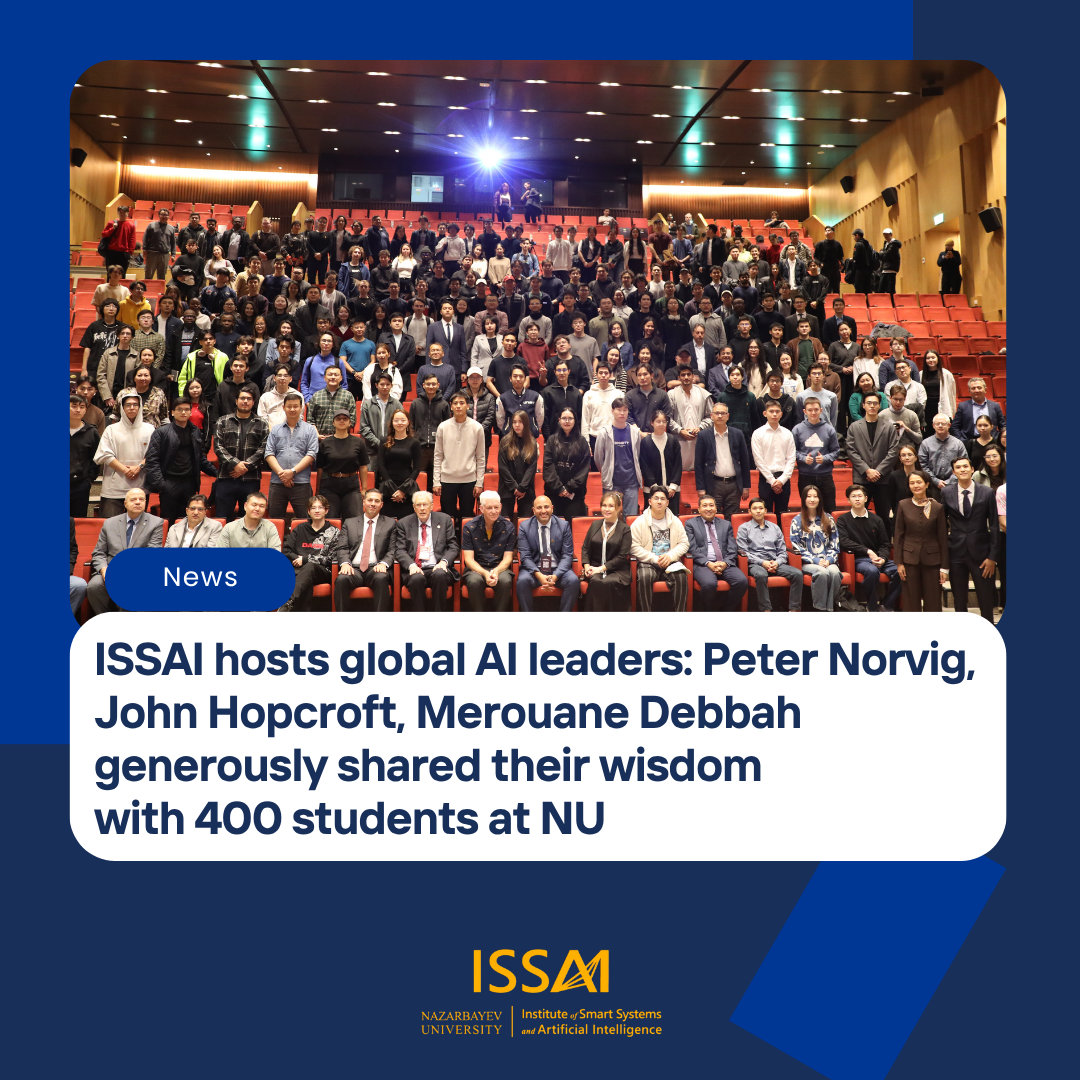On October 1, 2025, the Institute of Smart Systems and Artificial Intelligence (ISSAI) at Nazarbayev University hosted AI Horizons: A Conversation with Global Leaders, a landmark event that brought together internationally renowned pioneers in artificial intelligence.
The discussion featured Prof. Peter Norvig, Researcher at Stanford University and Director of Research at Google; Prof. John Hopcroft, Turing Award laureate and distinguished scientist in computational theory; and Prof. Merouane Debbah, Professor at Khalifa University of Science and Technology (Saudi Arabia). The session was moderated by Prof. Huseyin Atakan Varol, Founding Director of ISSAI, and attended by students, faculty, and researchers from the NU AI community.
Their visit to Kazakhstan was part of a broader initiative under the National AI Council, established by the President of the Republic of Kazakhstan to position the country at the forefront of global AI development. The event was made possible through the support of the Ministry of Artificial Intelligence and Digital Development of the Republic of Kazakhstan, which played a key role in bringing these global thought leaders to the country and facilitating their engagement with Kazakhstan’s growing AI community.
The dialogue addressed the future of AI research, education, and global competitiveness. Prof. Hopcroft reflected on the enduring importance of classical computer science in the age of deep learning and emphasized the value of aligning careers with personal passion: “You get one life to live. Don’t waste it. Find out what you enjoy, and organize your career so that instead of working, you’re going to do what you enjoy.”
Prof. Norvig spoke on the challenges of interpretability in increasingly complex AI systems, underscoring the importance of trustability: “An explanation is a story, and we all like to hear stories—but sometimes we get taken in by them. To achieve real trustability, we need a whole battalion of approaches, checks and balances, and methods for saying: yes, I believe this system is doing what it is supposed to do.”
The panelists also shared perspectives on Kazakhstan’s role in the global AI ecosystem. Prof. Hopcroft noted that immediate opportunities lie in applications such as agriculture and education. Prof. Norvig highlighted the importance of addressing real-world needs, advising young innovators to “make something people want.” Prof. Debbah encouraged students to be proactive in building connections with leading researchers: “Write to the people you admire. Show that you’ve studied their work, identify a problem, and propose how you can contribute.”
The event concluded with an open exchange between the speakers and NU students, inspiring the next generation of AI researchers and practitioners to pursue their work with curiosity, creativity, and purpose.



